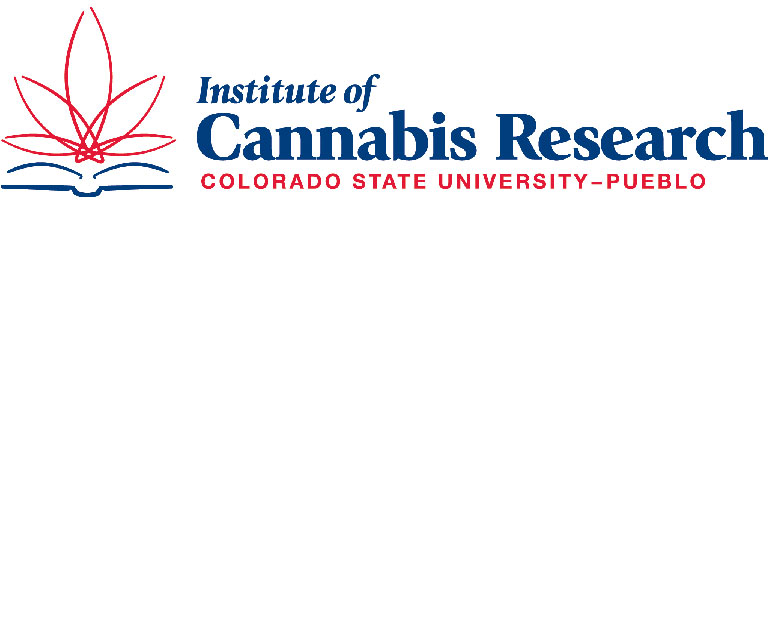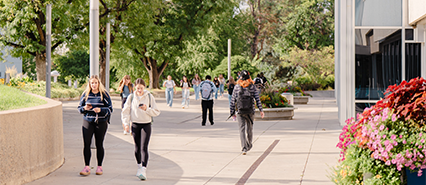Institute of Cannabis Research New Structure and Leadership Team
Release Date: June 29, 2018

Institute of Cannabis Research New Structure and Leadership Team
PUEBLO - The Institute of Cannabis Research is an innovative and unique asset to Colorado State University–Pueblo and can be a key differentiator for the University in a crowded higher education landscape.
In late April, Dr. Kreminski informed the President of his intent to go back to the Math Department. Because of the sensitive and potentially controversial nature of the work done at the ICR, in early May, President Mottet formed a leadership committee to identify the challenges and opportunities facing the ICR as it evolves into a highly-regarded research facility. After numerous meetings and extensive discussions, the committee recommended a thoughtful, well-defined leadership model that provides a platform for the highest research protocols and standards while maintaining open communications channels with community stakeholders including educators, lawmakers, public health and safety officials and business leaders. The leadership committee defined the necessary qualifications for the ICR Director Position. To ensure a smooth and timely transition, the committee carefully identified and ranked key internal candidates who have relevant research and administrative experience and are well versed in the associated scientific, societal and educational challenges.
In the new structure, the director will report directly to the Provost and will work closely with both a University Steering Committee as well as a Community Liaison Board to monitor research topics and efforts and ensure community engagement regarding additional research opportunities and partnerships. The director will work in concert with an assistant director and a senior scientist to achieve the ICR mission.
Dr. Chad Kinney, current Chair of the Chemistry Department, has accepted additional duties as the Director of the Institute of Cannabis Research. Utilizing his robust research experience and leadership abilities, Dr. Kinney is charged with identifying potential expansion opportunities for the ICR including interdisciplinary studies and programs, public-private-government partnerships and collaborations with other academic institutions. The Steering Committee and Community Liaison Board will provide guidance and support as Dr. Kinney manages the efforts of the to-be-named ICR Conference Chair as our institution continues to host world experts and leaders in cannabis thought and research. Under Dr. Kinney’s leadership, the ICR journal is expected to publish its first edition in the fall of 2018.
Under the new structure Melody Dowell will serve as the Assistant Director of the Institute of Cannabis Research and will be supporting Dr. Kinney as the Director by facilitating the research grant process and providing office management and support for current programming as well as serve in an advisory capacity for additional programming opportunities. Ms. Dowell will also serve as liaison for media inquiries and community concerns and help facilitate ICR relations on campus and in the broader community.
Two new ICR staff were hired under Dr. Kreminski’ s leadership, and have just recently joined the ICR. Dr. Sang Park has joined the ICR as a Senior Scientist/Research Liaison and was previously a research professor with CSU-Pueblo. Dr. Park completed his bachelor’s degree in microbiology at Chung-Nam National University in South Korea and earned a master’s degree from the Department of Plant Pathology from the University of Arkansas, Fayetteville. In 2011, Dr. Park obtained his PhD in the Department of Plant, Soil, and Microbial Sciences at Michigan State University.
Xiao Cui joined the ICR as a Data Analyst in June 2018. Ms. Cui has extensive experience in clinical trials and proficiency in SAS, R, Minitab, SQL, Tableau, and is the coauthor on several publications. Having earned master’s degrees in Biotechnology and Applied Statistics from Pennsylvania State University, Ms. Cui has worked for private companies as well as Johns Hopkins Medical School as a research technologist/clinical coordinator. In her role as ICR’s Data Analyst, Ms. Cui supports ICR researchers with experimental design and statistical analysis.
Because of the economic, public health and safety, educational and social impacts of cannabis, the ICR will explore innovative partnerships and collaborations to promote thoughtful and responsible academic study. Possible avenues include:
Public-private-government partnerships and collaborations with other academic institutions;
Increased student engagement to provide real-world applications in their field of study;
Tangible mechanisms including student research support, curricular development and environment and public health opportunities to strengthen existing academic programming through ICR activities;
Potential new programs or program enhancements through ICR involvement;
Leveraging expertise and infrastructure of the ICR to diversify funding and granting sources to support growth within the Institute as well as within peripheral scholarly activities;
Synergistic activities and fields of study that may benefit from ICR supported activities (agriculture, social work, sustainability, criminal justice, etc.);
Development of a speaker series to overlay ICR studies and issues with those in other departments (public health, nursing psychology, history, political science, etc.);
Development of a more robust and traditional approach to managing the ICR Conference program incorporating peer review of sessions and proposals from internal and external experts;
Incorporating a vendor exhibition (instrumentation, equipment, etc.) at the ICR Conference to facilitate the interaction between academic researchers and industry with relevant vendors.
While the specific roles have changed within the ICR leadership, all faculty and staff who have served the Institute since its inception have provided integral work and leadership for the Institute to have arrived at today’s tipping point in its evolution.


